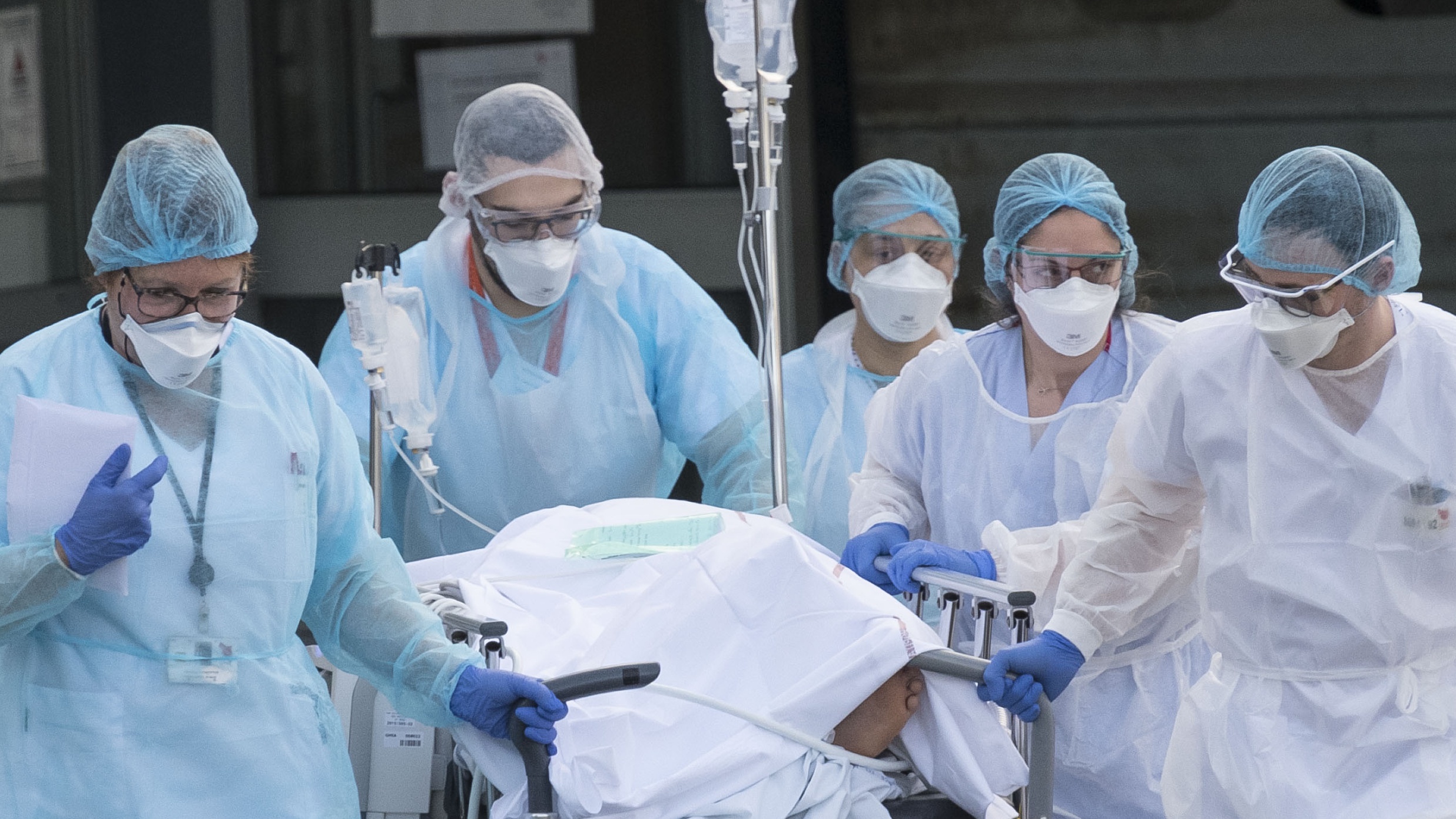Gmo Babies Given Go Ahead by Uk Ethics Body
Designer babies: the arguments for and against
Debate intensifies equally U.k. ideals trunk gives go-ahead to gene editing for not-medical reasons

Perfecting the genes of unborn babies could exist "morally permissible" in the time to come, according to a new report by an influential medical ethics panel.
Under current laws, scientists are "only allowed to genetically edit human embryos for 14 days for research purposes, later which they must be destroyed, and it is illegal to implant them into a womb", says The Daily Telegraph.
But the Nuffield Council on Bioethics says it could exist acceptable to changes these laws, provided safeguards were met. The council's study says that factor-editing procedures would be acceptable if they secure the future person'south welfare and do non increase disadvantages, discrimination or divisions inside society.
"The potential use of genome editing to influence the characteristics of future generations is not unacceptable in itself," said panel chair Karen Yeung, a professor of law, ethics and informatics at Birmingham University.
The discussion nearly the ethics of designer babies has been brought into sharp focus by the development of a engineering science called Crispr-Cas9 that "makes it remarkably simple to directly tinker with the homo genome (the DNA sequence) of an early embryo", says Wired.
When combined with IVF, "these new genetic tools allow scientists to change the DNA, which is the blueprint of a human embryo, when it consists of just 1 or a few cells", the magazine explains.
Although technical hurdles remain, "advances in factor editing mean that it is possible to contemplate a time when embryos tin can be modified and so that genetic diseases, or even genetic predispositions to disease, are eliminated", reports The Times.
But opponents of designer babies "warn that permitting the practice could lead to the creation of super humans who have an unfair genetic advantage over others", says German newspaper Deutsche Welle.
Here are brief summaries of arguments from both sides of the fence:
For
- Since many diseases are caused by a single genetic mutation, those in favour enquire why we shouldn't edit the Deoxyribonucleic acid of an embryo or the sperm and egg to remove the mutation entirely. "In effect this would remove a error from humanity forever," says The Times. John Harris, a bioethicist at the University of Manchester, says: "The human being genome is not perfect. It's ethically imperative to positively support this technology."
- Those in favour fence that these scientific advances can be regulated in order to avert potential doomsday scenarios. "I still think y'all tin try to regulate the applied science," Arthur Caplan, founding head of the Segmentation of Bioethics at New York University, told U.s. Today. "It would be nice if we had an international group; prepare out some rules. It would exist nifty if the scientific customs - with religious and ethics and legal leaders - would fix upward some rules of how to operate. It would be nice if journal editors would say, 'We're not publishing anything unless these rules are followed.'"
- In the U.s., a poll found that 83% of people thought genetic modification to make a baby more than clever would be "taking medical advances besides far", according to MIT Technology Review, published by the Massachusetts Institute of Engineering. However, proponents of genetic applied science argue that higher IQ is exactly what we should exist considering. Nick Bostrom, an Oxford philosopher best known for his work on the risks of artificial intelligence, wrote in a 2013 paper that even a small number of "super-enhanced" individuals could "change the world through their creativity and discoveries, and through innovations that everyone else would employ".
Cons
- At that place is the possibility that people will utilise the technology for "enhancements", rather than fighting affliction, American TV host John Oliver said recently on his show Final Calendar week Tonight. "The more than control people take over the ability to blueprint their children, the bigger the moral questions that raises - up to and including, who decides what constitutes a genetic trouble that needs to be 'fixed'?"
- Another issue is that of practicalities. Doctors say that but because we can modify a cistron does not mean we know what that modify will do. "Most diseases are non caused by a single gene merely many. Changing lots of genes could have lots of effects elsewhere," reports The Times.
- Whatever ethical debate "will also naturally run against practicalities similar funding", says The Independent. Many patients are subject already to a postcode lottery in accessing fertility treatment based on their local NHS funding, and "gene editing could initially be out of reach for all but the richest", adds the newspaper. Acknowledging this problem, panel chair Professor Yeung said that if funding inequalities "were to exacerbate social injustice, in our view that would non be an ethical approach".
Recommended
Quiz of The Week: 5-11 March

Quiz of The Calendar week: 5-xi March
The true Covid-19 global death cost

The truthful Covid-19 global death toll
Chernobyl: the history, the impact and the present risk

Chernobyl: the history, the impact and the present hazard
Are we close to developing a variant-proof Covid-19 vaccine?

Are we shut to developing a variant-proof Covid-nineteen vaccine?
Pop articles
Are we heading for World War 3?

Are we heading for World War Iii?
Nato vs. Russia: who would win?

Nato vs. Russia: who would win?
What should Brits practice in the event of a nuclear attack?

What should Brits practise in the result of a nuclear attack?
Source: https://www.theweek.co.uk/95108/designer-babies-the-arguments-for-and-against
0 Response to "Gmo Babies Given Go Ahead by Uk Ethics Body"
Postar um comentário